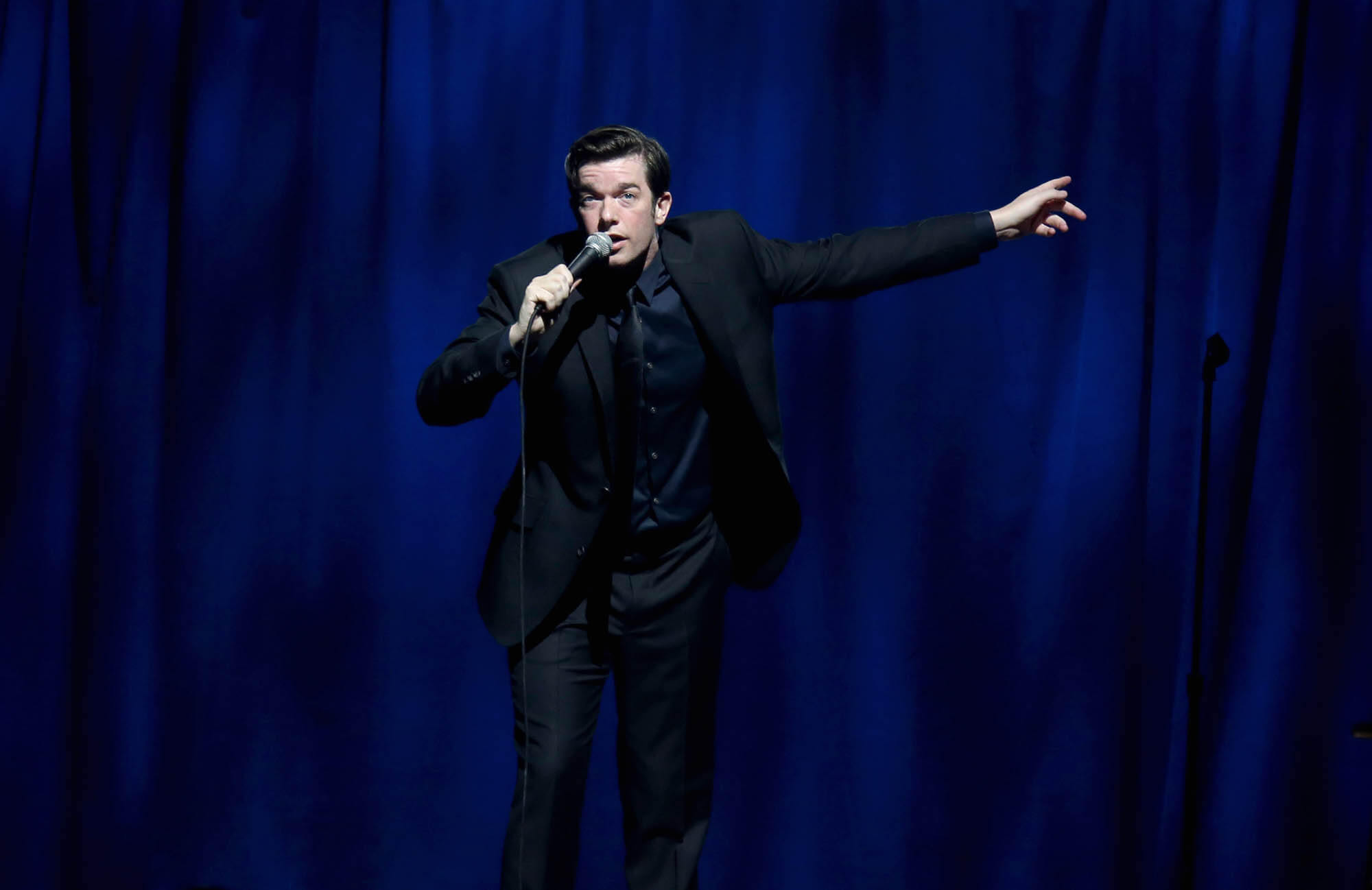John Mulaney survived



Once and future internet darling John Mulaney returns with a new standup special after a wild couple of years. His flameout was well-documented: relapse, rehab, divorce, surprise baby with Olivia Munn. The internet had Many Opinions on all of it, but in his new, super-sized special, Baby J, Mulaney mostly focuses on his relapse and rehab, digging into his self-destruction for his rawest and realest standup set to date. But if you’re looking for dirt on his divorce or his situation with Olivia Munn, you will be disappointed.
Mulaney acknowledges his fall from grace right off the top and speaks off the cuff to a young fan in the audience, admitting this set will be different, and that people’s opinion of him has changed. But he keeps his focus on his addiction and recovery—his young son, Malcolm, only comes up once, in a callback to an earlier bit. Salacious this special is not, despite being about a recovery journey.
Coming in at 80 minutes, Mulaney eschews a traditional opening and Baby J launches mid-joke. This special is all comedy, no filler. He also, smartly, forgoes the moment he walks on, skipping the audience ovation, tacitly establishing what he is about to share does not make him a hero or particularly special or even brave. It’s his job, he’s at work, we get right into it. I saw him on the road with this material, even though the set was a bit rough—the jokes are more polished and land much better here—he did get a MASSIVE ovation the moment he took the stage. Cutting that out of the show is astute, it avoids a celebratory tone for his return and keeps the focus on his storytelling.
The meat and potatoes of Baby J is Mulaney’s addiction and recovery narrative, and while it lacks the whimsy of his previous specials, Baby J is a reframing of sorts, resituating Mulaney after his public persona as America’s Wife Guy was essentially destroyed. Two things really leap out during this special—beyond Mulaney’s mastery of delivery—and the biggest is that Mulaney’s entire public persona up until 2020 was built on a lie. He spoke openly of his addiction before (though his bit about trying to get a Xanax prescription lands differently now that we know that was one of the substances he abused), but without giving a bullet-point timeline, he makes it clear he was perpetuating a front for years before landing in rehab at the end of 2020.
People should never take a comedian’s stage persona for who that person really is, but in Mulaney’s case it’s especially true because he was for a while there deep in his addiction and working hard to convince everyone otherwise. His persona was a double construct, not just a stage performer’s craft but also an addict’s armor against discovery. (Related: his podcast interview with Theo Von. I don’t usually f-ck with Von, but they’re both in recovery and Mulaney speaks candidly about “maintaining”. It’s an interesting sidebar to his comedy built around the same reality.) Mulaney is aware that his public perception has changed, but here he forces part of that change to be the public reckoning with the reality that he was always lying about who he was.
(A better reason to be peeved at Mulaney than his personal life, which involves none of us, is that he keeps springing Dave Chappelle on unsuspecting audiences as an unannounced opener.)
The second thing that stands out in Baby J is a line Mulaney drops in a sing-song voice at the top of the show: “Likeability is a prison”. That line is haunting, applicable far beyond his individual circumstances, and though Mulaney doesn’t belabor the destruction of his persona, that line sums the whole thing up. He was likeable, he was trapped in that perception, but now that he is no longer America’s Wife Guy, or even America’s Nice Guy, he has a new sharpness. I wouldn’t call him an edgy comedian by any stretch, but there is a spikiness now in his delivery, in the way he examines the audience, more critical, less openly pleading for acceptance. His words possess a new bite, he’s sharp in a way he wasn’t before.
This new John Mulaney is still a stage persona. This is not who he is in his downtime, Baby J is John Mulaney At Work. But there is a raw honesty in his stories this time around, a self-awareness of what he lost, publicly and personally, but also what he gained. You can feel him reveling in being cancel-proof (“You’ll cancel John Mulaney? Well, I’ll kill him!”), which goes to his line about likeability.
Why does he need to worry about the internet’s opinion of him? He survived his rock bottom, he didn’t completely self-destruct despite his addiction. He came out the other side as funny as ever, but with a new, refreshing candidness. The best comedy is a mirror held up to uncomfortable reality, and in Baby J John Mulaney holds up a mirror to addiction—the messiness, the imperfection, the failure and embarrassment, but also the liberation of survival. John Mulaney is here to tell us all about it. He survived.
Baby J is now streaming on Netflix.

